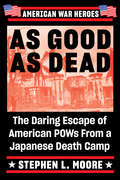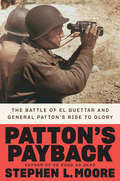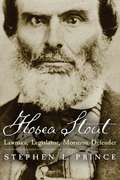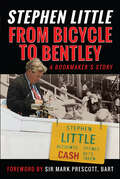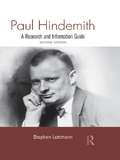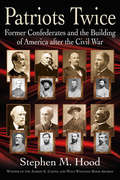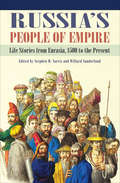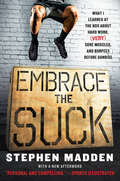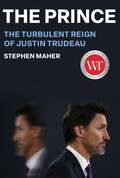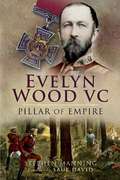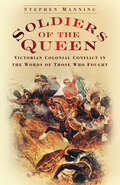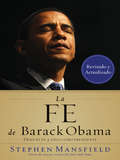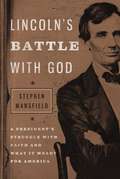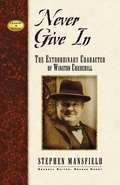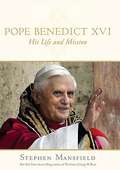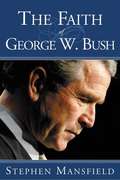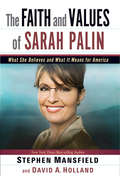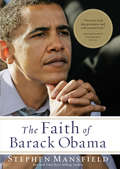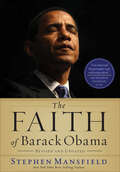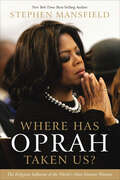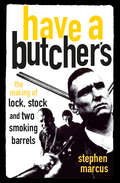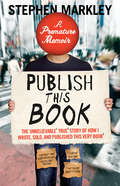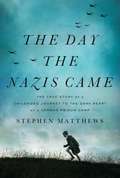- Table View
- List View
As Good As Dead: The Daring Escape of American POWs From a Japanese Death Camp (American War Heroes)
by Stephen L. MooreThe heroic story of eleven American POWs who defied certain death in World War II--As Good as Dead is an unforgettable account of the Palawan Massacre survivors and their daring escape. In late 1944, the Allies invaded the Japanese-held Philippines, and soon the end of the Pacific War was within reach. But for the last 150 American prisoners of war still held on the island of Palawan, there would be no salvation. After years of slave labor, starvation, disease, and torture, their worst fears were about to be realized. On December 14, with machine guns trained on them, they were herded underground into shallow air raid shelters--death pits dug with their own hands. Japanese soldiers doused the shelters with gasoline and set them on fire. Some thirty prisoners managed to bolt from the fiery carnage, running a lethal gauntlet of machine gun fire and bayonets to jump from the cliffs to the rocky Palawan coast. By the next morning, only eleven men were left alive--but their desperate journey to freedom had just begun. As Good as Dead is one of the greatest escape stories of World War II, and one that few Americans know. The eleven survivors of the Palawan Massacre--some badly wounded and burned--spent weeks evading Japanese patrols. They scrounged for food and water, swam shark-infested bays, and wandered through treacherous jungle terrain, hoping to find friendly Filipino guerrillas. Their endurance, determination, and courage in the face of death make this a gripping and inspiring saga of survival.From the Hardcover edition.
Patton's Payback: The Battle of El Guettar and General Patton's Rise to Glory
by Stephen L. MooreA stirring World War II combat story of how the legendary George Patton reinvigorated a defeated and demoralized army corps, and how his men claimed victory over Germany&’s most-feared general, Erwin Rommel &“Moore brings you to the battlefield and into the mind of a fearless military genius.&”—Brian Kilmeade, bestselling author of The President and the Freedom Fighter • &“Essential reading.&”—Kevin Maurer, #1 NYT bestselling coauthor of No Easy Day • &“[Moore] has a smooth prose style and a firm grasp of detail.&”—The Wall Street JournalIn March 1943, in their first fight with the Germans, American soldiers in North Africa were pushed back fifty miles by Rommel&’s Afrika Korps and nearly annihilated. Only the German decision not to pursue them allowed the Americans to maintain a foothold in the area. General Eisenhower, the supreme commander, knew he needed a new leader on the ground, one who could raise the severely damaged morale of his troops. He handed the job to a new man: Lieutenant General George Patton. Charismatic, irreverent, impulsive, and inspiring, Patton possessed a massive ego and the ambition to match. But he could motivate men to fight. He had just ten days to whip his dispirited troops into shape, then throw them into battle against the Wehrmacht&’s terrifying Panzers, the speedy and powerful German tanks that U.S. forces had never defeated. Patton, who believed he had fought as a Roman legionnaire in a previous life, relished the challenge to turn the tide of America&’s fledgling war against Hitler—and the chance to earn a fourth star.
Hosea Stout: Lawman, Legislator, Mormon Defender
by Stephen L. PrinceHosea Stout witnessed and influenced many of the major civil and political events over fifty years of LDS history, but until the publication of his diaries, he was a relatively obscure figure to historians. Hosea Stout: Lawman, Legislator, Mormon Defender is the first-ever biography of this devoted follower who played a significant role in Mormon and Utah history. Stout joined the Mormons in Missouri in 1838 and followed them to Nauvoo, where he rose quickly to become a top leader in the Nauvoo Legion and chief of police, a position he also held at Winter Quarters. He became the first attorney general for the Territory of Utah, was elected to the Utah Territorial Legislature, and served as regent for the University of Deseret (which later became the University of Utah) and as judge advocate of the Nauvoo Legion in Utah. In 1862, Stout was appointed US attorney for the Territory of Utah by President Abraham Lincoln. In 1867, he became city attorney of Salt Lake City, and he was elected to the Utah House of Representatives in 1881. But Stout’s history also had its troubled moments. Known as a violent man and aggressive enforcer, he was often at the center of controversy during his days on the police force and was accused of having a connection with deaths in Nauvoo and Utah. Ultimately, however, none of these allegations ever found traction, and the leaders of the LDS community, especially Brigham Young, saw to it that Stout was promoted to roles of increasing responsibility throughout his life. When he died in 1889, Hosea Stout left a complicated legacy of service to his state, his church, and the members of his faith community. The University Press of Colorado gratefully acknowledges the generous support of the Charles Redd Center for Western Studies at Brigham Young University toward the publication of this book.
Henry Loves Jazz: The Diary Of A Reluctant Father
by Stephen LaceyStephen Lacey is quite possibly the most neurotic human being on the planet. A bundle of depression, anxiety and hives, he wonders whether he's cut out to be a father. In fact, he's not even sure he likes children. Henry Loves Jazz is a fly-on-the-wall account of what happens when Henry, his first-born child, comes home: the sleepless nights, exploding eco-nappies, celebrity chef cookbooks, black jellybeans and giant Mexican tarantulas. Henry Loves Jazz is not just about those first months of coping with a baby at forty-three, but the author's journey from a childless existence to the dagdom of parenthood. Along the way, he questions everything he knows about his own upbringing and his relationship with his parents and his long-suffering wife. He also discovers a love so deep, he can't see the bottom.
From Bicycle to Bentley: A Bookmaker's Story
by Stephen LittleStephen takes the reader from his earliest school days when it became clear he was academically bright, especially in math, attending prep school, winning a scholarship to major public school Uppingham where he won math prizes and, aged 16, passed 3 S (scholarship) levels. By then he had decided to be a bookie. He attended an interview for Cambridge University only because it was on his bicycle route to Newmarket races! Unable to work in any gambling job until 18, he set about visiting racecourses by bicycle, staying in youth hotels (17½p per night), eventually cycling to all racecourses in the UK, including several now-defunct courses. At 18 he found employment with Beresford & Smith in London; aged 24 he got his first bookie’s license in 1971 and by the age of 40 in 1986 was betting big on the rails at major meetings such as the Grand National, Cheltenham, Derby, Royal Ascot and Glorious Goodwood, often laying bets to lose £100,000 or more - when money was worth nearly twice today’s value - one of the few bookies who happily stood "toe to toe and traded blow for blow" with big hitters like JP McManus, Barney Curley, Michael Tabor and Harry Findlay. In 1998 changes in pitch administration prompted early retirement, and he sold his pitches, worked for a few unsatisfactory years for Corals and then departed the big time - with a Bentley as well as a bicycle, a house in Georgian Bath and a satisfactory bank balance.
Paul Hindemith: A Research and Information Guide (Routledge Music Bibliographies)
by Stephen LuttmannPaul Hindemith: A Research and Information Guide is an annotated bibliography concerning both the nature of primary sources related to the composer and the scope and significance of the secondary sources which deal with him, his compositions, and his influence as a musician and teacher. The second edition includes research published since the publication of the first edition and provides electronic resources.
Patriots Twice: Former Confederates and the Building of America after the Civil War
by Stephen M. HoodA “timely” look at the roles played by ex-Confederates after the war, in politics, academia, the military, industry, and more (Midwest Book Review).The long and bloody American Civil War claimed the lives of more than 700,000 men. When it ended, former opponents worked to rebuild their reunified nation and move into the future together. Many people will find that surprising—especially in an era witnessing the destruction or removal of Confederate monuments and the desecration of Confederate cemeteries.In this unique and timely book, award-winning author Stephen M. Hood identifies more than three hundred former Confederate soldiers, sailors, and government officials who reintegrated into American society and attained positions of authority and influence in the federal government, the United States military, academia, science, commerce, and industry. Their contributions had a long-lasting and positive influence on the country we have today.For example, ten postwar presidents appointed former Confederates as Supreme Court justices, secretaries of the U.S. Navy, attorneys general, and a secretary of the interior. Dozens of former Southern soldiers were named U.S. ambassadors and consuls, and eight were appointed generals who commanded troops during the Spanish-American War. Former Confederates were elected mayors of such unlikely cities as Los Angeles, Minneapolis, and Santa Fe, and served as governors of multiple non-Confederate states and territories.Ex-Southern soldiers became presidents of professional societies including the American Bar Association and the American Medical Association, to name only a few. Others paved the way in science and engineering by leading the American Society of Civil Engineers, the American Chemical Society, the American Association for the Advancement of Science, and the Geological Society of America. One former Confederate co-founded the environmental preservation group Sierra Club, and another was president of the Society for Classical Studies.Former soldiers in gray founded or co-founded many colleges and universities—some exclusively for women and newly freed African-Americans. Other former Rebels served as presidents of prominent institutions, including the University of California, Berkeley, and taught at universities outside the South including Harvard, Yale, the University of Wisconsin-Madison, Johns Hopkins, and Amherst College. Several others served on the governing boards of the United States Military Academy at West Point and the United States Naval Academy at Annapolis.Every reader of Patriots Twice has benefited from the post-Civil War reconciliation when former combatants put down their swords, picked up their plowshares, and accepted the invaluable contributions of these (and thousands of other) former Confederates. The men who carried the bayonets found common cause and moved on together. This is an important concept everyone should—no, must—embrace to keep America united, strong, and free.
Russia's People of Empire: Life Stories from Eurasia, 1500 to the Present
by Stephen M. Norris and Willard Sunderland&“A fresh and lively approach to understanding how the various Russian empires have worked.&” —Slavic Review A fundamental dimension of the Russian historical experience has been the diversity of its people and cultures, religions and languages, landscapes and economies. For six centuries this diversity was contained within the sprawling territories of the Russian Empire and the Soviet Union, and it persists today in the entwined states and societies of the former USSR. Russia&’s People of Empire explores this enduring multicultural world through life stories of 31 individuals―famous and obscure, high born and low, men and women―that illuminate the cross-cultural exchanges at work from the late 1500s to post-Soviet Russia. Working on the scale of a single life, these microhistories shed new light on the multicultural character of the Russian Empire, which both shaped individuals&’ lives and in turn was shaped by them. &“[S]tudents of Russian empire would be well served with this work, given its snapshots of diverse imperial milieus and their attendant multicultural dialogues at the personal level.&” —Slavic and East European Journal &“This compilation . . . gives readers a more in-depth, personal understanding of how the inescapable existence of diversity in Russia and the Soviet Union related to everyday life . . . Highly recommended.&” —Choice
Embrace the Suck: What I Learned at the Box ABout Hard Work, (Very) Sore Muscles, and Burpees Before Sunrise
by Stephen MaddenTO BE FIT, OR CROSSFIT?Lifelong amateur athlete Stephen Madden immersed himself in the culture, diet, and psyche of CrossFit—the fast-growing but controversial fitness regime that’s a stripped-down combination of high-intensity aerobic activity, weightlifting, calisthenics, and gymnastics. Madden is just one of more than two million athletes worldwide to do so. In Embrace the Suck, the former editor in chief of Bicycling magazine explores with irreverence, humor, and soul-touching candor the fitness revolution sweeping America. Madden chronicles the year he devoted to trying to master all the basic CrossFit exercises, like double unders, muscle-ups, and kipping pull-ups, and immersing himself in the Paleo diet that strips weight from its followers but leaves them fantasizing about loaves of bread. Along the way, he explores the culture of the sport, his experience of becoming a CrossFit coach, and some basic questions about himself, his past, and his athletic limitations—and why something so difficult and punishing can be at once beautiful, funny, and rewarding.Whether you are a CrossFitter or a nascent athlete, you will come away from this book understanding the limitless potential of the human body and mind, and will learn what it takes to welcome and defeat any kind of suck.
The Prince
by Stephen MaherThe first comprehensive biography of Justin Trudeau as prime minister—an honest, compelling story of his government&’s triumphs and failures, based on interviews with over 200 insiders and Trudeau himself.As one of the longest-surviving prime ministers and son of the legendary Prime Minister Pierre Elliott Trudeau, Justin Trudeau is near royalty in Canada. But how did this former high school teacher with no noteworthy accomplishments put together a team that managed to take over the Liberal Party and bring it from third place to a majority government in 2015? The Prince shows just that. In this first comprehensive history of the Justin Trudeau government, veteran journalist Stephen Maher takes readers behind the scenes of a tumultuous decade of Canadian politics. Through hundreds of interviews with political insiders, he describes how Trudeau—a Canadian prince—had the famous name, the political instincts, the work ethic, and the confidence to overcome errors in judgment and build a global brand, winning in the boxing ring and on the debate stage. And then things changed as key people left the Trudeau team and the government lost direction. Trudeau is an enigmatic figure—a politician who has been in the public eye since childhood and seeks attention but has always concealed his actual feelings from those around him. He has shown admirable strength and skill, deftly handling Donald Trump in trade deals and international meetings and in leading Canada through the COVID-19 pandemic. He has delivered substantial results for people within his political coalition—the most successful attack on poverty in a generation, real progress on climate change, and a sustained application of money and political capital to Indigenous reconciliation. Even as the government overcame major challenges, however, errors in judgment and personality conflicts wasted political capital. Trudeau has struggled to manage his own office, with devastating consequences, and alienated people outside his coalition, to the point where he can&’t hold a public event without protesters screaming curses at him. The Prince takes readers behind the curtain as the government goes from triumph to embarrassment and back again, revealing the people, the conflicts, and the struggles both in the government and on the opposition benches. Above all, it traces why this ambitious government led by a global media darling is now so unpopular it is in danger of imminent collapse.
Evelyn Wood VC: Pillar of Empire
by Stephen ManningGiven the increasing interest in the Victorian era an authoritative biography of Field Marshal Sir Evelyn Wood VC is long overdue. By any standards his career was remarkable and began with him in the Royal Navy in the Crimea before he transferred to the cavalry to see more action.
Soldiers of the Queen: Victorian Colonial Conflict in the Words of Those Who Fought
by Stephen ManningIt may come as some surprise that in such a popular area of military history there is no book that focuses on the experience of the Victorian soldier - from recruitment to embarkation, fighting and perhaps returning, perhaps dying - in his own words. Dr Manning's meticulous research in primary sources gives the lie to the received image of the disciplined, redcoated campaigner of Victorian art and literature: for one thing, by the time he arrived at his destination, the coat would have been in rags. The distances covered on march were unbelievable, through desert and disease-ravaged swamp. Lavishly illustrated throughout, all the major Colonial campaigns and most of the minor ones are featured. To understand how what was in reality a tiny standing army controlled the largest empire the world has ever seen, this book is a must.
La fe de Barack Obama
by Stephen MansfieldLas elecciones del 2008 ahora son solo un recuerdo, pero ¿qué pasó con todas las promesas que le hizo Barack Obama al pueblo estadounidense?En este libro revisado y actualizado, Stephen Mansfield profundiza una vez más en la controversial fe del presidente Obama. Con dos nuevos capítulos dedicados a los primeros dos años de esta histórica presidencia, Mansfield continúa su exploración en la fe de Obama sin inclinaciones políticas o religiosas.
Lincoln's Battle with God: A President's Struggle with Faith and What It Meant for America
by Stephen MansfieldAbraham Lincoln is the most beloved of all U.S. presidents. He freed the slaves, gave the world some of its most beautiful phrases, and redefined the meaning of America. He did all of this with wisdom, compassion, and wit. Yet, throughout his life, Lincoln fought with God. In his early years in Illinois, he rejected even the existence of God and became the village atheist. In time, this changed but still he wrestled with the truth of the Bible, preachers, doctrines, the will of God, the providence of God, and then, finally, God's purposes in the Civil War. Still, on the day he was shot, Lincoln said he longed to go to Jerusalem to walk in the Savior's steps. What had happened? What was the journey that took Abraham Lincoln from outspoken atheist to a man who yearned to walk in the footsteps of Christ? In this thrilling journey through a largely unknown part of American history, New York Times best-selling author Stephen Mansfield tells the richly textured story of Abraham Lincoln's spiritual life and draws from it a meaning sure to inspire Americans today.
Never Give In: The Extraordinary Character of Winston Churchill
by Stephen MansfieldWinston Churchill was one of the most extraordinary leaders of the twentieth century. What was it that enabled him to stand so steadfastly when all those around him seemed to turn back in fear? What was it that enabled him to inspire whole nations to endure the unendurable and to achieve the unachievable when all those around him had already surrendered all hope? This remarkable new study of Churchill's leadership skill answers these questions and more. The result is an account that is as inspiring today as it was more than half a century ago when the great man' shadow fell large across the world stage. According to Henry Kissinger, Our age finds it difficult to come to grips with Churchill. The political leaders with whom we are familiar generally aspire to be superstars rather than heroes. The distinction is crucial. Superstars strive for approbation; heroes walk alone. Superstars crave consensus; heroes define themselves by the. . . future they see it as their risk to bring about. Superstars seek success in a technique for eliciting support; heroes pursue success as the outgrowth of their inner values. Winston Churchill was a hero.
Pope Benedict XVI
by Stephen MansfieldWhile often regarded as a conservative influence on the church, the Pope and his story defy easy categorization, argues bestselling author Stephen Mansfield. John Paul became a priest only after attending an underground seminary during the Nazi occupation of Poland. To keep his national culture alive during those dark years, young Karol started an outlawed theater troupe. He became a poet and a playwright, and, even after gaining an international reputation as a theologian, he still kept the artist's touch. Mansfield vividly recalls the Pope as the churchman whose courage helped to bring down communism, as the world figure who visited his would-be assassin's prison cell to extend forgiveness, and as the theologically conservative icon who fought for the poor and against the corruptions of capitalism more than any other world leader of his time. He is the first pope to enter a synagogue, the first to apologize for the Holocaust, and the first to visit a concentration camp. What is certain, says Mansfield, is that Pope John Paul II has had a decisive impact on our times, and not only as a religious leader: He has shaped our world as a philosopher, a statesman, an artist, and a "great soul. " In Pope John Paul II, Mansfield examines the Pope's influence on the world specifically from the perspective of a non-Catholic-a committed Christian without fealty to Rome. Mansfield's academic depth, his poetic but widely accessible writing style, and his ability to render complex religious ideas understandable to the non-religious, lend his treatment of Pope John Paul II significance for readers of all philosophies and faiths.
The Faith Of George W. Bush
by Stephen MansfieldExplores the religious ideals that drive the policies and politics of George . Bush as president and that privately shape him as a man.
The Faith and Values of Sarah Palin: What She Believes and What It Means for America (Playaway Adult Nonfiction Ser.)
by Stephen MansfieldShe stepped onto the world stage as the Republican vice-presidential nominee in the election of 2008. Previously, she had only been a small town mayor and the governor of a state with slightly more than half a million people. Still, there was something about her. She was pretty, fierce in her conservatism and she seemed undaunted by the slings and arrows of national politics And there was something else, as well: there was a moral force that seemed to shape her life. As the world grew to know Sarah Palin throughout the 2008 campaign and in her subsequent public appearances and book people began to see the force behind her: a deep, lifelong Christian faith. This faith was the lens through which she viewed the world, the bedrock of her politics, and even a primary influence upon her personality. To understand Sarah Palin, it is essential to understand her faith. What faith principles, then, impact Sarah Palin’s politics, and what are their implications for the Republican Party and the nation as a whole? These questions and more are answered in the fascinating new book by New York Times bestselling author Stephen Mansfield and his co-author David Holland. These authors were given extensive access to Palin’s pastors, advisors, friends and family and it has allowed them to capture the moving story of Palin’s faith, as well as the meaning of that faith for American politics and culture.
The Faith of Barack Obama
by Stephen MansfieldGet inside the mind and soul of Barack ObamaIn The Faith of Barack Obama, New York Times bestselling author Stephen Mansfield takes readers inside the mind, heart, and soul of presidential hopeful Barack Obama--as a person of faith, as a man, as an American, and possibly as our future commander in chief.America faces looming inflation, climate change, a national credit crisis, war in the Middle East, threats to security and liberty at home, and skyrocketing oil and gas prices. With all of these threats to our security, prosperity and freedom on the horizon, it has never been more important to choose the right leader for America."If a man's faith is sincere, it is the most important thing about him, and it is impossible to understand who he is and how he will lead without first understanding the religious vision that informs his life," writes Mansfield. In The Faith of Barack Obama, Mansfield holds back nothing to share that vision and explain its roots, including: Obama's upbringing in a non-Christian homethe influence on his life from his agnostic mother and Muslim fatherhis remarkable turn to Christianity after working in the inner cities of Chicagohis years at the controversial Trinity United Church of Christhis association to the radical teachings of Rev. Jeremiah Wrightthe source of Obama's relentless optimism and hope for AmericaEvery American voter concerned to know more about Obama's beliefs, both religious and political, and how the two intertwine should read this book, as should every thinking person who continues to shape and evolve his or her religious beliefs.Barack Obama, according to Mansfield, is "raising the banner of what he hopes will be the faith-based politics of a new generation . . . and he will carry that banner to whatever heights of power his God and the American people allow." "You must read this perceptive and well written book. Then you will know why Barack Obama has such a passion for justice and equity, such a gift for filling people of different generations with a newfound hope that things can and will change for the better." -- ARCHBISHOP DESMOND TUTU
The Faith of Barack Obama
by Stephen Mansfield&“You must read this perceptive and well written book. Then you will know why Barack Obama has such a passion for justice and equity.&” —Archbishop Desmond Tutu Barack Obama. The speculation about his religious life abounds. Is he a closet Muslim? Is he really a Christian? Did his faith have anything to do with his governing? As the picture of President Obama&’s faith has emerged, questions about the foundation of his beliefs continue to ignite debate. In this updated edition of his international bestseller The Faith of Barack Obama, New York Times bestselling author Stephen Mansfield explores the claims of Obama&’s detractors and supporters alike, while examining how the challenges of the presidency shaped Obama&’s religious beliefs. This evenhanded account of the former president&’s spiritual life provides a closer look at the people and events that have influenced his belief system. Mansfield analyzes Obama&’s friendship with the controversial Jeremiah Wright and also profiles the Christian leaders who offered guidance and support during the president&’s challenging term. Mansfield takes you inside the religious life of Barack Obama, introducing you to the type of preaching the president heard at Camp David and even revealing details such as the content of the daily devotional readings the former president received on his cell phone. This fascinating study explains the faith elements within Obama&’s politics, while acknowledging the questions about his beliefs that remain unanswered. &“Mansfield presents an analysis of Obama&’s distinctly postmodern journey that will generate valuable discussion across the religious spectrum.&” —Publishers Weekly
Where Has Oprah Taken Us?: The Religious Influence of the World's Most Famous Woman
by Stephen Mansfield“Reveals the Oprah story no other dares to tell—and with a two-edged sword that rightly divides the truth from the lies.” —Star Parker, nationally syndicated columnist and media commentator New York Times bestselling author Stephen Mansfield traces the fascinating and influential life of Oprah Winfrey, profiling her quest for spiritual enlightenment—a well-publicized journey featuring a caravan of experts, mystics, and gurus—all claiming to have a prescription for inner peace and personal well-being. Mansfield shows how Oprah’s story fits into our larger cultural experience and reveals why her spiritual discoveries have resonated so loudly in today’s popular culture. In so doing, he sheds needed light on the dangers of a spiritual journey fueled solely by a desire for self-actualization.In the end, we find that the story of Oprah is, in fact, the story of us—of a generation searching desperately for something meaningful to believe in.“Stephen Mansfield offers us an unvarnished account of Winfrey’s life (and our own spiritual wandering) told graciously and irresistibly. You will be thrilled, disturbed, and astounded, but ultimately inspired and uplifted.” —Rabbi Daniel Lapin, American Alliance of Jews and Christians
Have a Butcher's: The Making of Lock, Stock and Two Smoking Barrels
by Stephen MarcusWhen Lock, Stock and Two Smoking Barrels was released in 1998, few would have prophesied quite the impact this low-budget crime comedy would have. Almost overnight it became a cultural phenomenon, launched the careers of Guy Ritchie, Matthew Vaughn and Jason Statham, amongst others, and spawned a television series and numerous British gangster film rip-offs in the process. But box office gold didn’t come without huge upheaval, and the making of the film was often fraught. In Have a Butcher’s, actor Stephen Marcus (Nick The Greek in the film) recounts the on-set dramas, the behind-the-scenes banter, his initial meeting with Guy Ritchie, the subsequent trips to Hollywood as the boys basked in success and critical acclaim, and the numerous financial problems that were only solved when Sting and Trudie Styler came on board. Drawing upon interviews with his co-stars, never-before-seen photos and original storyboards, Stephen tells the story of a film that has become a firm cult favourite.
Publish This Book: The Unbelievable True Story of How I Wrote, Sold and Published This Very Book
by Stephen MarkleyDear Reader-This is called the "back cover copy," and you are no doubt familiar with its purpose. It describes what the book is about, so you can decide if you want to read it. Here's the problem, though: I can't even describe this book, and I wrote the damn thing. (1)Basically, it's like this: fed up with the Byzantine quest of trying to publish a novel, I decide instead to cut to the chase and write a memoir about trying to publish a book--this book, to be precise. Of course, now you're saying to yourself, "That is stupid," which is fair. But then you'll read it, and you'll say, "Damn, that was actually pretty good. "Because obviously it's about much more than just publishing a book. It's about life and love and friendship; politics, pop culture, and basketball; sex, drugs, and mild, inoffensive, slow-tempo Christian rock. (2)It's about the pitfalls of narrating your life as it unfolds, freaking out when an agent actually (spoiler alert!) takes an interest in this bizarre experiment, and the surreal shock you undergo when a publisher actually buys it(3) and you suddenly realize that every secret drunk, drug, and sex story you've related will now be required reading for your parents, aunts, ex-girlfriends, and thousands of strangers who-you were kind of hoping-would never find out that you once accidentally shut your penis in a dresser drawer. (4)And finally, but most importantly, it's about those tumultuous early years of adulthood-the years when hope and fear and rage broil together and the promise of youth still holds the capacity to inspire awe. This is a story of those struggles-to find your true voice in your work and in your life. And the best part?You pretty much know it has a happy ending. (5)2 It is not really about that last one. 3 And then later makes you write your own back cover copy even though you clearly do not know what you're doing. 4 Although I'll dodge a bullet there because I totally left that story out of the book. 5 Except for what happens to the puppy at the fertilizer plant. I admit, that part is kind of a downer.
The Day the Nazis Came: The True Story of a Childhood Journey to the Dark Heart of a German Prison Camp
by Stephen MatthewsAn poignant and timeless true story of one child&’s journey to a German prison camp during World War II.The Day the Nazis Came is an utterly unique memoir, depicting the world of prison camps through the eyes of a child. Our narrator's parents did their best to protect his emotional well-being, downplaying the extent of dangers and presenting every new day as an adventure. But there is only so much you can do to hide such a dark truth and, by the time he was six years old, Stephen Matthews had actually seen and experienced things of unspeakable horror: he had witnessed a bombardment by the Luftwaffe and had been deported from occupied Guernsey, along with his family, to a prison camp in the heart of Adolf Hitler's Third Reich; he had seen men die in front of him; he had walked alongside Jews coming straight off the cattle-trucks from Bergen-Belsen; he had nearly drowned, been menaced by an Alsatian guard dog, and had his hand broken by a German guard for attempting to feed Russian prisoners. Against all odds, Stephen and his family endured over three years of imprisonment, held together by their will to survive, their love for each other, and the humor they had all been gifted with. But when the war ended and they were set free, the home they eventually returned to had been irremediably scarred and stricken by Nazi occupation and so, once again, they had to fight to pick up the pieces. Supported by and enriched with his mother&’s diary notes, which had been secreted away in an old leather-bound family Bible throughout the years in the camp, The Day the Nazis Came is a phenomenal piece of history as well as a heart-wrenching account of the horrors of the war and deportation. It is, above all, a heart-warming tribute to the preciousness of hope, of life, and of the indomitable spirit of man to survive. And while honoring the memory of the three courageous Germans who risked everything to protect as many as the prisoners in their charge as they could, it also shows how human kindness may flower and prevail in the unlikeliest of places.
